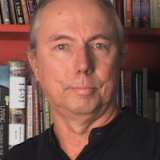Why People Don’t Succeed at Meditation – Tips for Meditating
In the past, I’ve often written that the principles of cultivation , regardless of your school, religion or practice you choose – center on cessation and contemplation. All the truly effective meditation methods in the world depend on the principles of cessation and contemplation and if you don’t know this, or don’t know how these fit into your religious practice or apply to the cultivation method you’re following, then you’re practicing in vain.
Anyway, I recently found this quote from the book “To Realize Enlightenment,” by Nan Huai-Chin, where he addresses this very topic. I liked what he wrote, and because so many people seem to keep making sectarian mistakes in this area and misunderstand the purpose of their meditation practice (or other spiritual pursuits), I’ve bothered to type it up here for you.
Just remember ,I don’t promote Buddhism or Taoism or Christianity or Hinduism or any special religion ,just whatever works. Usually we refer to Buddhism a lot because it has the best terminology available for discussing cultivation topics. If we want to talk about the body, Taoism has the most complete system and set of terminology worked out. For esoteric phenomena, we rely on the Esoteric school, Taoism, and yoga. For charity and the emphasis on good works we focus on Christianity and for behavior ; Confucianism, Socraticism and the Mahayana. And so on it goes.
Don’t get sectarian about these things but Borrow the Best from wherever you find it, and use whatever school’s terminology is the most suitable, and whatever meditation method works (and adapt it for your religion if you like).Anyway, here’s that quote I liked enough to type up for you.
Let us discuss cultivating realization. To speak of cultivating realization in terms of seeing truth (seeing the Tao, or realizing enlightenment), cultivating realization is something subsidiary, and not worth talking about. But to speak truly about cultivating realization is not easy.
Cultivating realization means doing meditation work. The school of Buddhism or the method does not matter. It does not matter whether you recite mantras, study Zen, or refine the breath (cultivate pranayama breathing methods). It does not matter what kind of meditation work you do , they are all methods of cultivating realization. For the methods of cultivating realization there is just one main guiding principle that is cultivating “Cessation and Contemplation.”
At the level of cause it is called cessation and contemplation. At the level of result it is called concentration and wisdom. Cessation is concentration (samadhi), contemplation is wisdom (prajna). To put it another way, cessation is meditation work and contemplation is seeing truth. Therefore, you must cultivate cessation and contemplation.
No matter school or branch of Buddhism we study, at the beginning we learn quiet sitting. By no means should you divide Buddhism into separate sects. The various schools of Buddhism differ only in their methods, or in the emphasis of their methods. You, yourself, can choose a method to cultivate, but of course the best thing is to have the guidance of an enlightened teacher who can see what method suits you best. Relying on his or her guidance, you can choose a method to employ. People who have succeeded on the path can spontaneously comprehend any method whatsoever.
You shouldn’t equate sitting cross-legged in meditation with cultivating samadhi. The postures for cultivating samadhi are unlimited. You can achieve samadhi when sitting, standing, sleeping, walking, or eating: thee is no place and no time that Samadhi is impossible. However, at first we are not able to achieve cessation, and therefore it is necessary to do sitting meditation.
Altogether there are several dozen postures for sitting meditation, but the most advantageous physically and psychologically is to sit cross-legged. The function of sitting cross-legged is very great. If I wrote essays on this aspect, I could get very rich. But I have a basic principle, I have sworn never to write any piece that does not benefit the moral orientation of the world and the human mind. This is my personal gate of practice.
When we sit cross-legged in meditation, our energy system truly opens up, and this generates bliss not only for the body and the mind. The inconceivable capacities of your temporal bodies all come forth. For example, when an elderly person’s energy channels wholly open up, he or she can become like a baby. But are there any people in whom the energy channels in the legs have opened up? There are none, or at least I have never seen any.
Once they have crossed their legs properly, people who have truly found the road use a very thorough method. Since they have understood the true principle, their cultivation of practice very quickly gets on the right track.
In the past, when Shakyamuni Buddha was in the world, his disciples would realize the fruit of enlightenment in seven days or five days. This is no falsehood. Why did this happen? The people of ancient times did not have highly developed desires for material things. Their thoughts and mental states were pure and simple, so it was easy to realize the fruit of enlightenment. For modern people, the more learning they have, the harder it is for them and the less able they are able to succeed in cultivation. This is because we are too complicated.
When the ancients heard one word of the cultivation teachings, they were sure to practice it. In the Buddhist scriptures, there is a phrase that occurs all the time: “They faithfully received the teaching and carried it out.” This phrase occurs at the end of almost every scripture. This was not a mere literary formula: those who had been listening to the teaching really proceeded like this. All the Buddhist scriptures start with “Thus have I heard,” and conclude with “They faithfully received the teaching and carried it out.” In you can really do this, then you will succeed in your cultivation.
Article Courtesy of Meditation Expert.







